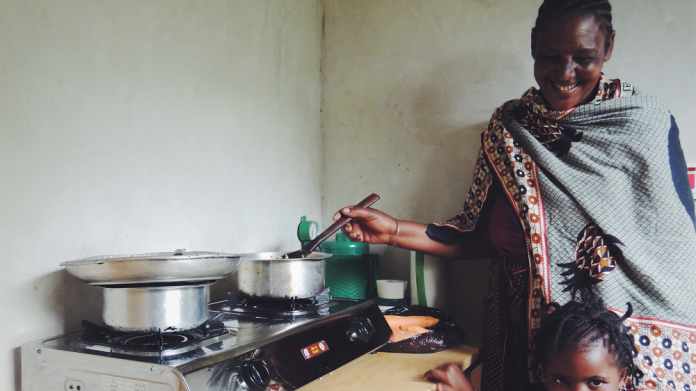Modern cooking solutions are vital to combating global climate change and reducing environmental degradation. In a true ‘win-win’, they also benefit respiratory health – particularly important given Covid-19 – and, in many cases, offer cost and time savings to low-income households.
More than four billion people currently lack access to modern cooking solutions that are clean, affordable, fuel efficient, convenient, and aspirational. This results in a climate-damaging 2% of total global carbon dioxide emissions – the equivalent of the footprint of Canada, South Korea, or Germany. A significant proportion of the four billion people use wood for fuel, causing forest degradation that leads to soil erosion, reduced biodiversity, and increased flooding. Additionally, cooking with biomass fuels emits 25% of global black carbon (soot) emissions, which is the second largest contributor to climate change after carbon dioxide.
Science clearly demonstrates that the use of clean, modern cooking solutions reduces carbon emissions. In the last decade, pioneering companies have developed innovative business models that are delivering a range of technologies such as ethanol, biomass pellets, biogas, liquified petroleum gas (LPG), and electric cooking devices, all of which can dramatically reduce harmful emissions.
However, these companies face a tremendous challenge in sourcing concessional and commercial capital. A recent report released by the World Bank estimates that the gap between what is currently being invested versus what is needed to achieve universal access is approximately $150 billion per annum. It is of critical importance to our shared environmental future and the success of the Sustainable Development Goals that major additional capital flows are unlocked to help companies with scalable clean cooking business models achieve their potential. Read more…



